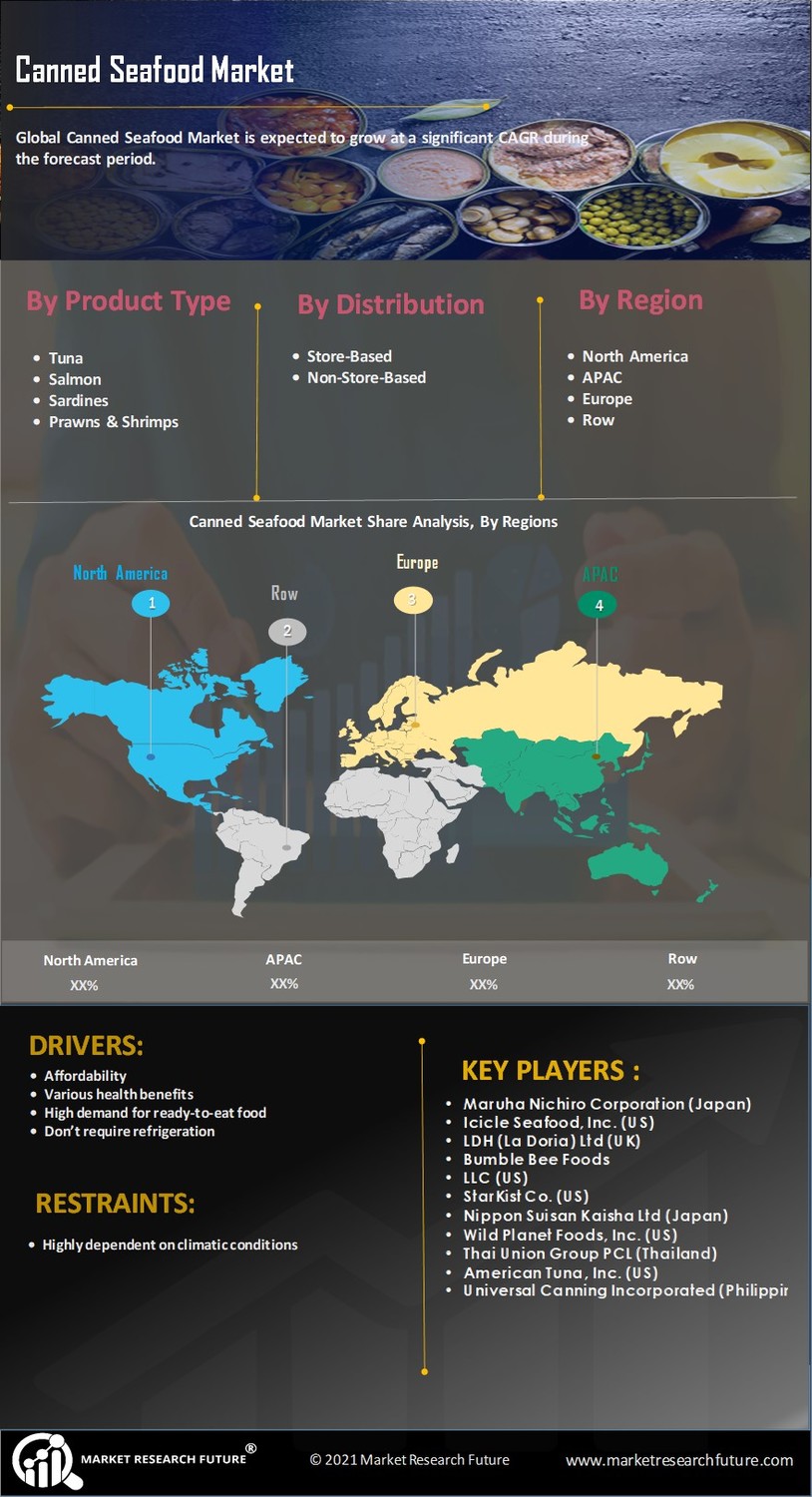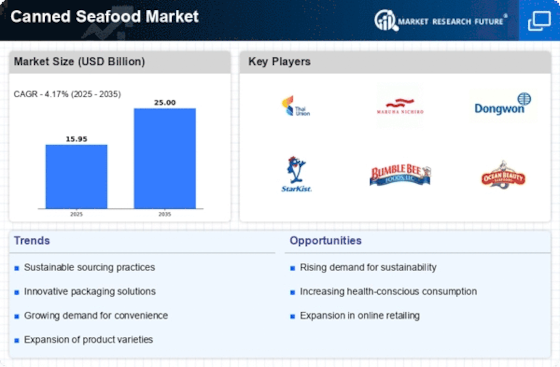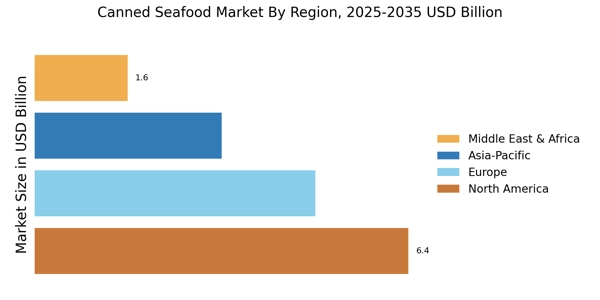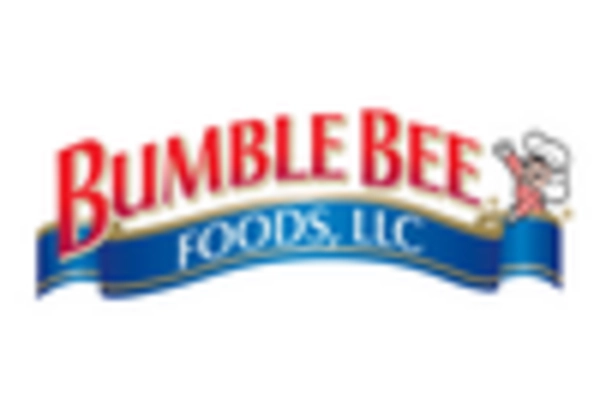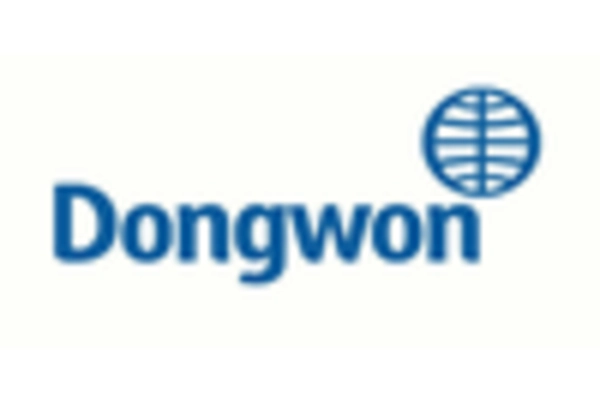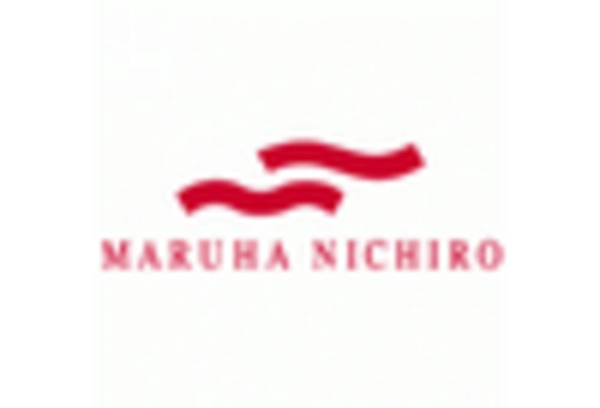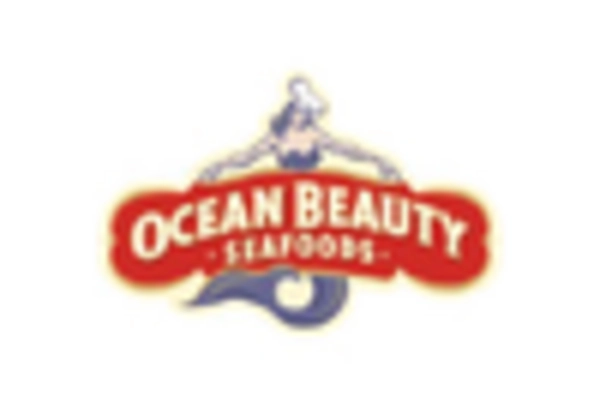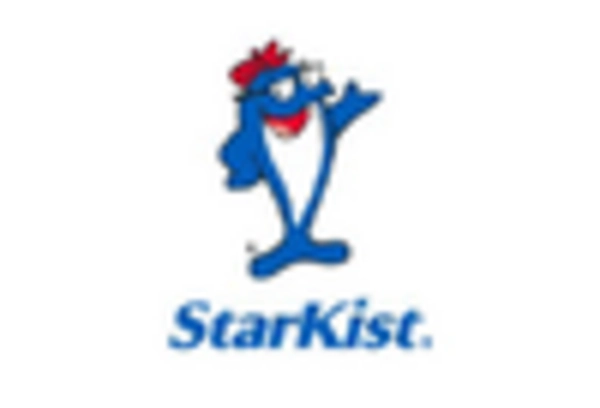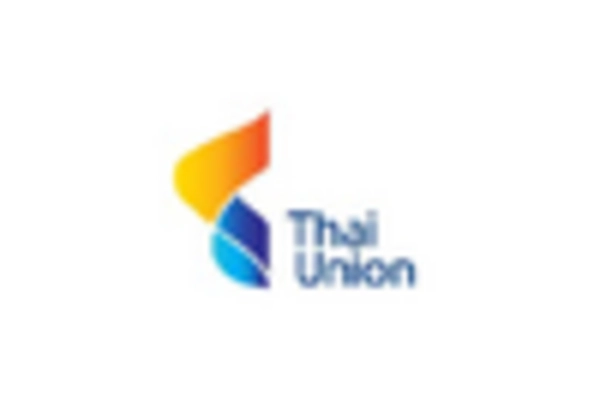Sustainability Trends in Food Production
The Canned Seafood Market is significantly influenced by sustainability trends in food production. As consumers become more environmentally conscious, there is a growing demand for sustainably sourced seafood. Canned seafood brands that prioritize ethical fishing practices and eco-friendly packaging are likely to attract a loyal customer base. Recent reports suggest that a substantial percentage of consumers are willing to pay a premium for products that align with their values regarding sustainability. This shift towards responsible consumption is reshaping the Canned Seafood Market, as companies adapt their sourcing and production methods to meet these expectations. The emphasis on sustainability not only enhances brand reputation but also contributes to the long-term viability of seafood resources.
Expansion of E-commerce and Online Retail
The Canned Seafood Market is experiencing a transformation due to the expansion of e-commerce and online retail platforms. With the increasing prevalence of online shopping, consumers are more inclined to purchase canned seafood through digital channels. This trend is supported by the convenience and accessibility that online shopping offers, allowing consumers to explore a wider variety of products. Recent data indicates that online grocery sales are on the rise, with canned goods being a popular category. As retailers enhance their online presence and offer home delivery options, the Canned Seafood Market is likely to see a boost in sales. This shift not only caters to changing consumer preferences but also opens new avenues for market growth.
Growing Awareness of Nutritional Benefits
The Canned Seafood Market is witnessing a surge in consumer awareness regarding the nutritional benefits of seafood. Rich in omega-3 fatty acids, protein, and essential vitamins, canned seafood is increasingly recognized as a healthy dietary choice. Recent studies indicate that seafood consumption is linked to various health benefits, including improved heart health and cognitive function. As health-conscious consumers seek nutritious food options, the demand for canned seafood is likely to rise. This trend is further supported by dietary guidelines that recommend regular seafood consumption. Consequently, the Canned Seafood Market stands to gain from this heightened focus on health and nutrition, appealing to a demographic that prioritizes wellness in their food choices.
Rising Demand for Convenient Food Options
The Canned Seafood Market experiences a notable increase in demand for convenient food options. As lifestyles become busier, consumers seek ready-to-eat meals that require minimal preparation. Canned seafood, with its long shelf life and ease of use, fits perfectly into this trend. According to recent data, the convenience food sector is projected to grow significantly, with canned seafood being a key player. This shift towards convenience is likely to drive sales, as consumers prioritize quick meal solutions without compromising on nutrition. The Canned Seafood Market is thus positioned to benefit from this evolving consumer behavior, as it aligns with the growing preference for hassle-free dining experiences.
Innovative Product Offerings and Flavor Profiles
The Canned Seafood Market is characterized by innovative product offerings and diverse flavor profiles. As consumer palates evolve, there is a growing demand for unique and gourmet canned seafood options. Manufacturers are responding by introducing new flavors, such as spicy, smoked, or infused varieties, which appeal to adventurous eaters. This trend is supported by Market Research Future indicating that consumers are increasingly seeking out premium and artisanal products. The introduction of innovative packaging and ready-to-eat meal solutions further enhances the appeal of canned seafood. As a result, the Canned Seafood Market is likely to benefit from this trend, attracting a broader audience and encouraging repeat purchases.
